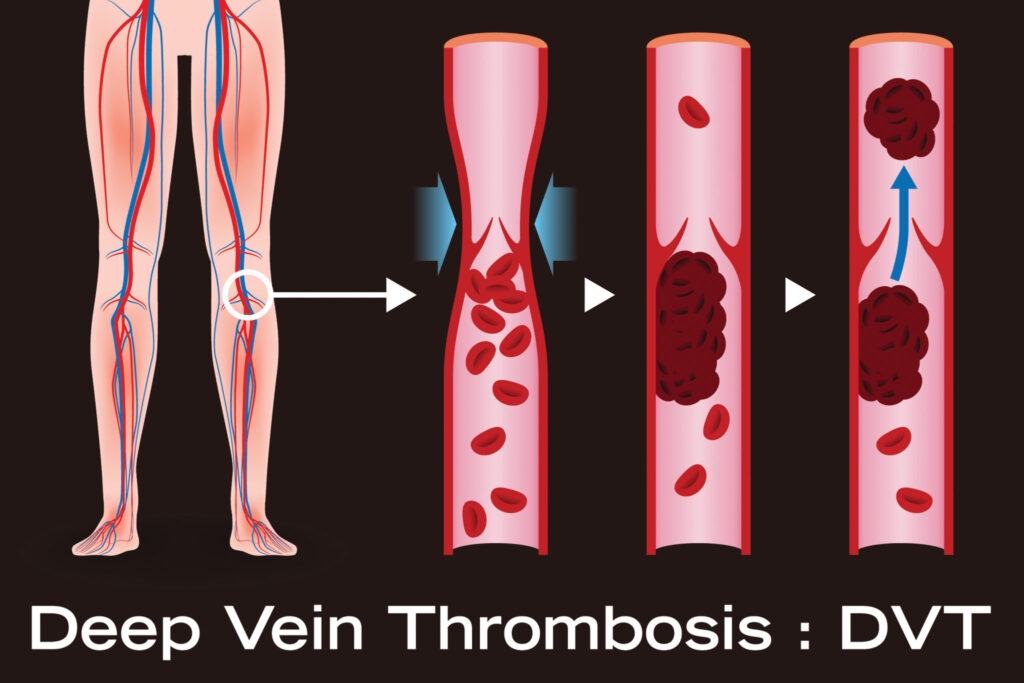Diagnosing Deep Vein Thrombosis: To diagnose mucormycosis, doctors at Smiles Hospitals may perform various tests, including:
Deep Vein Thrombosis
A Comprehensive Guide to Treatment and Prevention at Smiles Hospitals
At Smiles Hospitals, we understand the importance of providing accurate and valuable information to individuals seeking knowledge about various medical conditions. IA thorough explanation of deep vein thrombosis (DVT), its treatment, and precautions are our goals in this article. Our goal is to arm you with the information you need to make wise choices about your health and wellbeing.

What is Deep Vein Thrombosis?
Deep Vein Thrombosis, commonly known as DVT, refers to the formation of blood clots within deep veins, usually in the legs. These clots can obstruct blood flow, leading to potential complications if left untreated. DVT can occur due to various factors, such as prolonged immobility, surgery, hormonal changes, or a family history of blood clotting disorders.
Recognizing the Symptoms
The symptoms of mucormycosis can vary depending on the site of infection. Common symptoms include:
Effective Treatment Options
To diagnose mucormycosis, doctors at Smiles Hospitals may perform various tests, including:
- Medications: Anticoagulant medications, often referred to as blood thinners, are commonly prescribed to prevent the growth of existing blood clots and minimize the risk of new clots forming.
- Compression Stockings: Wearing compression stockings helps improve blood circulation and reduces the chances of blood pooling and clot formation.
- Catheter-Directed Thrombolysis: In severe cases, a catheter may be used to deliver clot-dissolving medications directly to the affected area, promoting the dissolution of the clot.
- Inferior Vena Cava (IVC) Filters: In some instances, an IVC filter may be inserted to catch blood clots before they reach the lungs, especially for patients who cannot take blood-thinning medications.
Preventing Deep Vein Thrombosis
To diagnose mucormycosis, doctors at Smiles Hospitals may perform various tests, including:
- Stay Active: Regular physical activity helps improve blood circulation. If you have a sedentary lifestyle, make sure to incorporate short walks or exercises into your daily routine.
- Maintain a Healthy Weight: Obesity can increase the risk of DVT. By adopting a balanced diet and maintaining a healthy weight, you can reduce this risk factor.
- Hydration: Staying well-hydrated ensures proper blood flow and prevents blood from thickening, reducing the likelihood of clot formation.
- Avoid Prolonged Immobility: If you have a job that requires long periods of sitting or standing, take regular breaks and move around to promote healthy blood circulation.
Smiles Hospitals: Your Partner in Health
At Smiles Hospitals, we are committed to providing exceptional medical care, including accurate diagnosis, effective treatment, and preventive measures for conditions like DVT. Our experienced healthcare professionals are dedicated to your well-being and strive to deliver the highest quality of care.
If you suspect you may have DVT or would like to learn more about our services, we encourage you to visit our website or contact us to schedule an appointment. Together, we can ensure your health and peace of mind.
